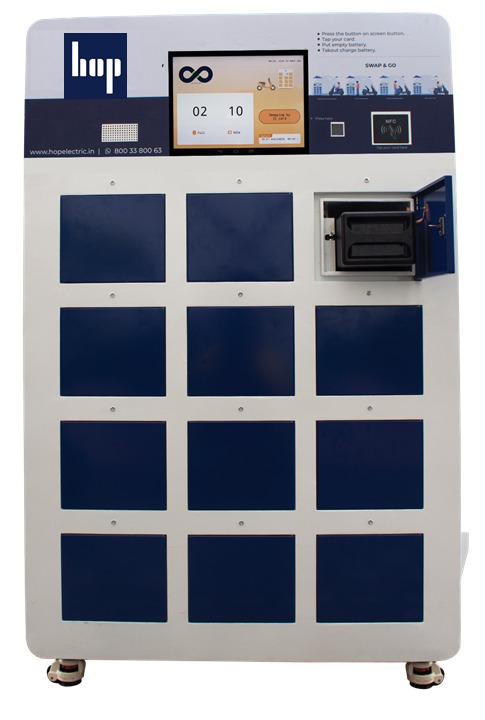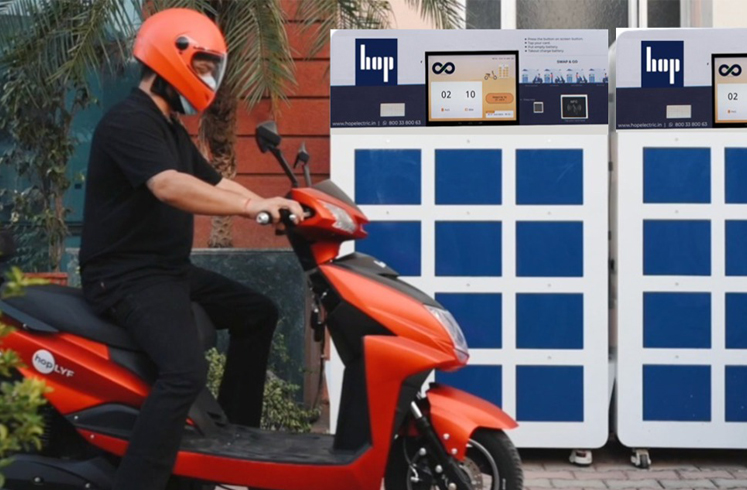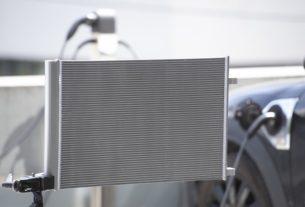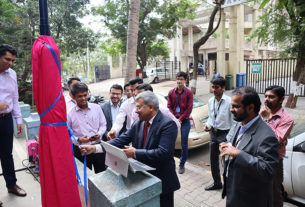Working towards a sustainable alternative for a greener future, HOP enables consumers to pay according to convenience and need
HOP Electric Mobility, leading home-grown integrated electric mobility company, has launched a first-of-its-kind integrated network of battery charging cum swapping stations under its ‘Hop Energy Network’. Aiming to bolster the country’s EV ecosystem, the new initiative is designed to reduce the range anxiety concerns of consumers. Now, consumers can charge a Hop electric scooter at home or swap to a fully charged battery when outside in less than 30 seconds.

Pilot-Test phase
The brand has already started its pilot network with 5 Swapping stations and 50 Batteries in Jaipur earlier this year. In fact, in just six months, they have already swapped over 2000 batteries adding 1,40,000+ clean kilometres.
“Today, we are living in a hyper-aware society which is concerned about climate changes and global warming. Electric scooters have already proven that they are sustainable, renewable and economical. With HOP energy network customers will be able to save both time and money. Our charging stations are equipped with cutting-edge technology where users will be able to replace their batteries within 30 second with hassle-free replacement. Only a handful of companies are enabling users in such a drastic manner and we are one of them.”
Ketan Mehta, CEO & Founder, HOP Electric Mobility

As of now, already close to 70,000 petrol pumps in India cater to IEC vehicles, and the number is likely to grow in the near future. If the existing infrastructure is used correctly, one doesn’t need to acquire extra land space to set up the electric vehicle charging stations. This is where HOP Energy Network is planning to disrupt the market with its decentralised energy distribution network. The company will be setting up new-age charging cum swapping stations at the existing petrol pumps, malls, parking lots and general stores so that the same infrastructure can be used to take a step towards a greener future.
The HOP Energy Network is a network of smart batteries and intelligent battery swapping cum charging stations, where customers can replace their discharged battery with a fully charged battery in less than 30 seconds. Furthermore, these battery swapping cum charging stations are fully automated capable of churning out over 150 fully charged batteries on a daily basis. Equipped with NFC (Near-field Communication) and a 15-inch HMI touch screen, these battery swapping cum charging stations are designed for easy self-use and round the clock operations.
Charge at home or swap when outside
With Hop energy network subscription, hop consumers are offered a unique ownership experience with distinct benefits such as no hassle of owning batteries, upto 40% lesser upfront cost, access to the latest battery technologies and a lifetime warranty on their batteries. In this way, owning electric scooters will become cost-effective, time-effective, and more convenient than ever before.
Customers are free to use the swapping battery options as per their convenience and needs. The first option is to opt for the monthly battery plan and enjoy unlimited battery swaps at any station at just INR 2500 per month. The second option is pay as you go service, where consumers use the service at INR 1/km only for the kilometres they ride.
On top of all that, the battery swapping cum charging stations are engineered to keep batteries cool while charging, resulting in long durability and optimal performance. After getting brilliant traction and results in Jaipur, the brand aspires to expand the charging stations network across India, starting with tier-I cities like Delhi, Pune, Bengaluru, Chennai, Hyderabad, Gurugram, Noida
It is pertinent to mention here that about 82% of India’s oil demand is currently fulfilled by imports. However, the large-scale adoption of electric vehicles is projected to help save close to USD 60 billion on oil imports by 2030.





